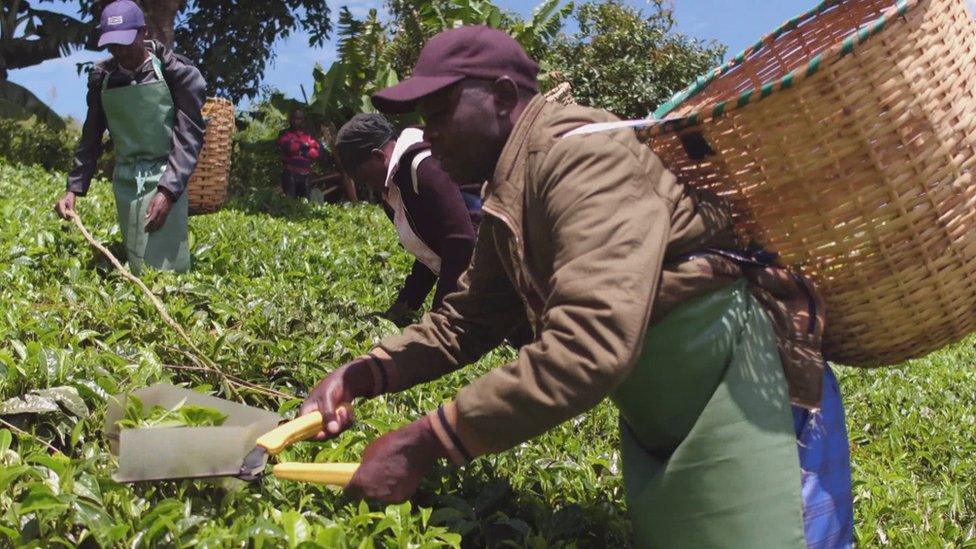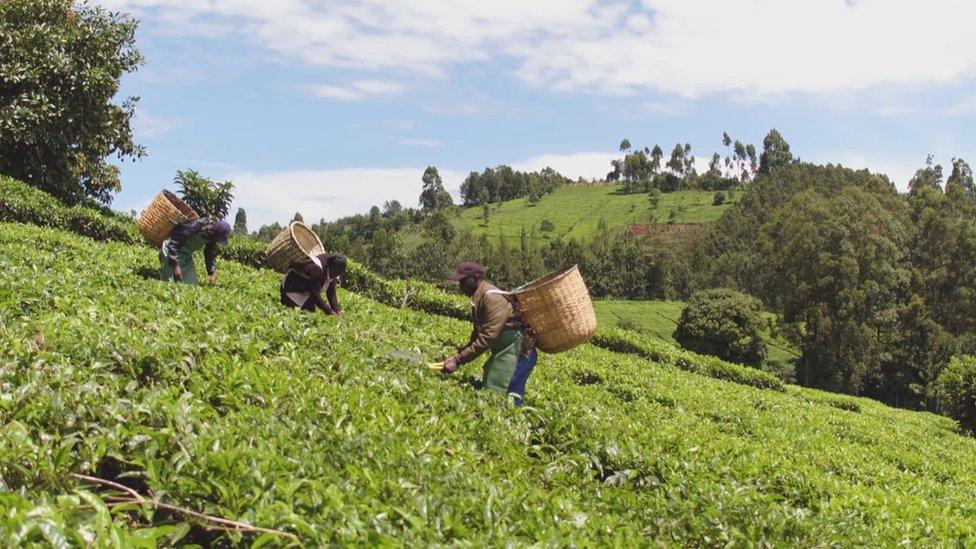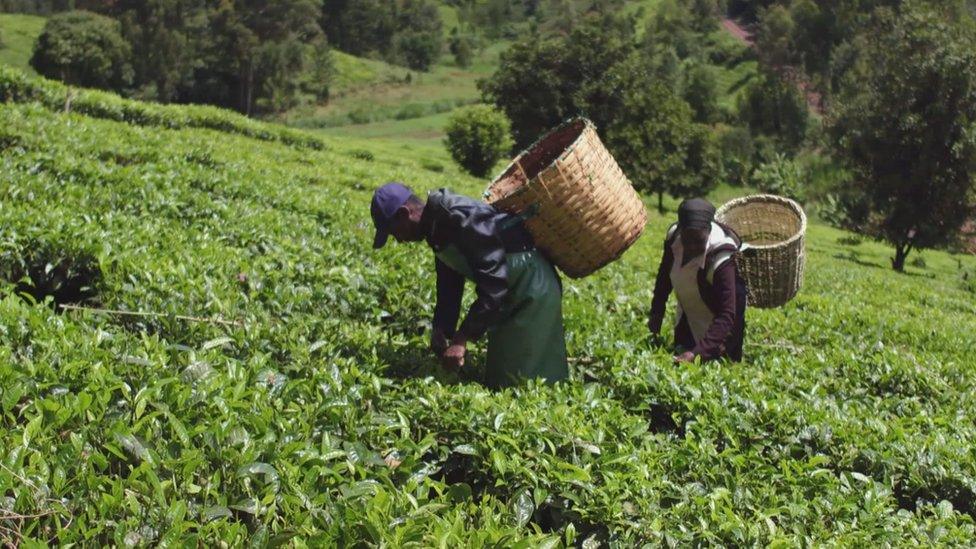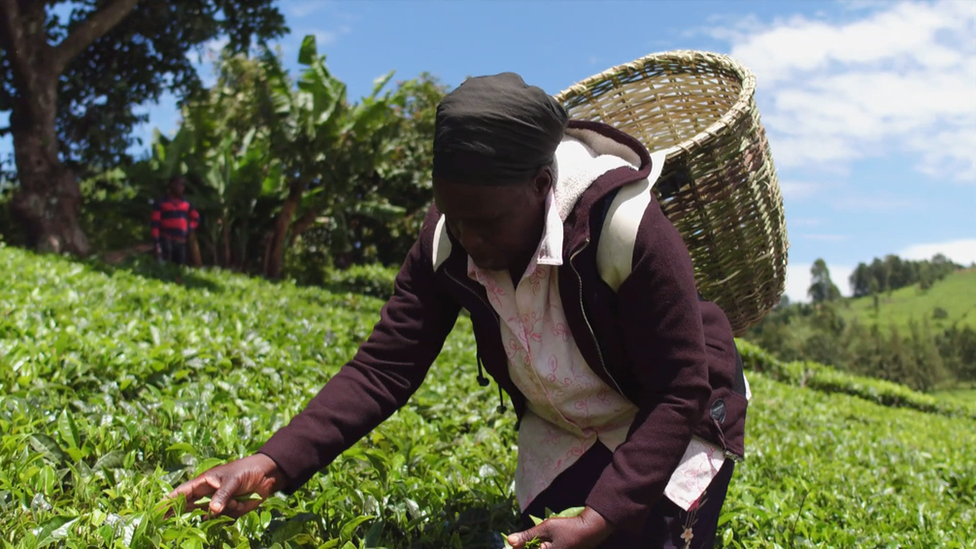Scottish firm ordered to halt legal action in Kenyan tea pickers case
- Published

A tea company is being ordered to stop taking legal action in Kenya to block a lawsuit in Scotland.
More than 1,000 former and current employees of James Finlay Kenya Ltd (JFK) are suing the company for damages at Scotland's supreme civil court, the Court of Session.
Last month the firm won a temporary injunction from a court in Nairobi, stopping workers from pursing the case.
A Court of Session judge ruled JFK should be told to halt action in Kenya.
That will allow the lawsuit in Scotland to get back on track.
The workers claim they suffered musculoskeletal injuries while working for Aberdeen-registered JFK at its farms in the Kericho region of Kenya. They have signed up to group proceedings - a class action lawsuit - in the Court of Session in Edinburgh.
Having failed to stop the lawsuit from going ahead, the company opened up a second front in the legal battle by seeking an order from the Employment and Labour Relations Court in Nairobi.
It argued that the Scottish case was an "an assault on the sovereignty of the Republic of Kenya" and violated the country's constitution.
The company said the "proper and natural forum" for a work injury dispute involving Kenyan workers governed by Kenyan law was in Kenya, not Scotland.

The court granted an interim anti-suit injunction, bringing the Scottish case to a temporary halt and preventing anyone else from joining the class action.
The names of the workers involved in the case were published in a national newspapers and pinned to notice boards on the tea farms.
Lawyers acting for the tea pickers have now won an order from the Court of Session, telling JFK not to continue with the Kenyan action.
They argued that JFK's conduct has been calculated to intimidate the workers and prevent them from having lawful access to the Scottish courts for resolution of a bona fide dispute.
They accused JFK of engaging in a "deliberate campaign to defeat the ends of justice and cause distress".
The judge, Lord Braid, said the workers' lawyers had put forward a "strong prima facie case" that JFK's actions had been "vexatious and oppressive".

"The group proceedings cannot continue for so long as the Kenyan anti-suit injunction remains in place," he said.
"That in itself will cause prejudice to the group members. To quote the oft used phrase, justice delayed is justice denied.
"There is at the very least a serious doubt as to whether the group members would be able to bring substantive damages claims in Kenya."
Lord Braid said it had not been suggested in any way that Scotland's legal system was superior to Kenya's.
JFK's argument that Scottish courts do not have jurisdiction over Kenyan work injury claims will be heard at the Court of Session at a later date.
- Published22 December 2021

- Published5 March 2021
